Generally speaking, the quickest way for a film to put me off is through maudlin heartstring tugging and saccharine sentimentality. That’s precisely why I’m so blown away by Your Name — it got to me in spite of myself. I’m not usually the type to include warm, fuzzy feelings in my list of cinematic predilections, but I’m also not afraid to admit that there is a heart buried somewhere underneath this beard, and writer/director Makoto Shinkai somehow managed to access it — with a sappy teen-romance melodrama, of all things. As such, this may well be the most embarrassing review I’ve ever written.
The reason this film succeeds where so many other contrived romances fail is its sincerity — as perplexingly implausible as it is, it never feels false or manipulative. And when I say “perplexing” and “implausible,” I’m not using those words lightly. The plot’s a little like The Shop Around the Corner meets Freaky Friday with a touch of time travel thrown in for good measure (although it’s far better than that description might imply), following two young high school students who mysteriously find themselves intermittently occupying each other’s bodies. Mitsuha is a provincial girl who longs for a more exciting life in the big city, and Taki is an overworked grump drifting aimlessly through an awkward adolescence in Tokyo. The typical body-swap shenanigans are glossed over quickly through an expertly paced montage, freeing up most of the film’s concise 106-minute running time to deal with the hows and whys of the duo’s metaphysical conundrum — and, of course, to explore their budding long-distance love story.
Those hows and whys have something to do with the 1,200-year orbit of a returning comet called Tiamat, though to say much more than that would be to risk spoilers. The rules of the story-world are laid out almost as efficiently as the plot’s serpentine high-concept twists, most significantly that Taki or Mitsuha revert to their own bodies when they go to sleep, their time in the other’s body is as quickly forgotten as a dream. This leads to some comical commentary from friends and family before the (literally) star-crossed lovers learn to communicate through notes penned on their respective flesh and smartphone diaries, as well as a few rules laid out by the characters themselves — Mitsuha has to stop blowing Taki’s paycheck on expensive desserts in Tokyo cafes, and Taki is prohibited from fondling or ogling of any sort after Mitsuha’s younger sister catches him testing out the goods when he wakes up in Mitsuha’s body.
Rest assured, however, that the hormonal hijinks that so often plague anime are effectively absent in Your Name — even Taki’s breast obsession is a setup for a remarkably moving payoff late in the film. Shinkai writes his protagonists as relatably flawed, but unquestionably likable. They’re wholesome without coming across as cloying, their character arcs well-defined with clearly delineated motivations and stakes — this is easily the first anime I’ve ever seen where the phrase “The Lubitsch Touch” came to mind. Adapting from his own novel, Shinkai knows where to place his narrative focus and when to avoid distraction, fleshing out story points and ancillary characters just enough to grant them some dimensionality without bloating the script with extraneous exposition or character beats.
I would have given this film a strong recommendation on the basis of its narrative construction alone, but it’s also a visually stunning accomplishment of animation. Shinkai, a former graphic designer and self-taught animator, has developed a process of CG augmentation that combines the intimacy of hand-painted cels with the immediacy of hyperrealistic backgrounds. This painstaking attention to detail allows for a film that evokes the narrative territory of Ozu while displaying the mastery of light displayed by few artists this side of Dreyer. Shinkai has drawn comparisons to Hayao Miyazaki both at home and abroad, but such conflations fail to do either artist justice.
Perhaps the basis for such remarks might have more to do with the fact that Your Name recently surpassed Studio Ghibli’s Spirited Away as the film boasting the highest domestic gross in Japanese history, and deservedly so. What Shinkai packs into his film’s scant screen time runs the emotional gamut from a meditation on isolation and longing to the ramifications of the earthquake and tsunami that led to the Fukushima disaster, all while maintaining a compelling love story at its heart. Shinkai is a director to watch, and Your Name is a film that begs to be not only seen but revisited. Like its protagonists’ desperate efforts to cling to each other’s identities when the harsh light of morning fractures their reveries, Your Name is an experience audiences will want to remember long after the credits roll. Rated PG for thematic elements, suggestive content, brief language, and smoking. Japanese with English subtitles. Opens Friday at Fine Arts Theatre.



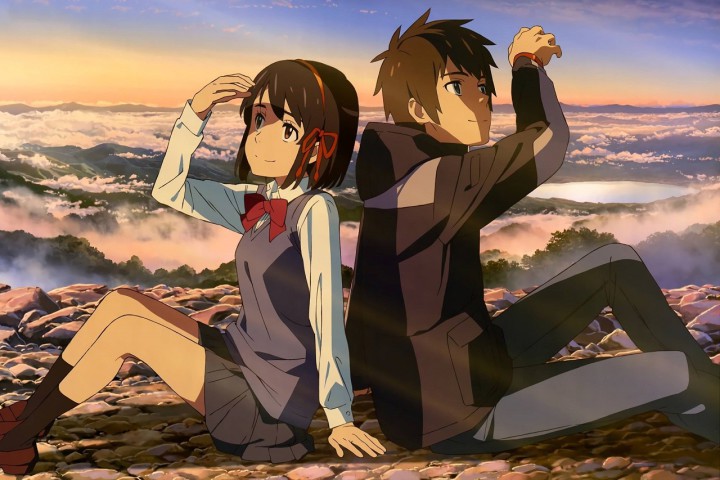
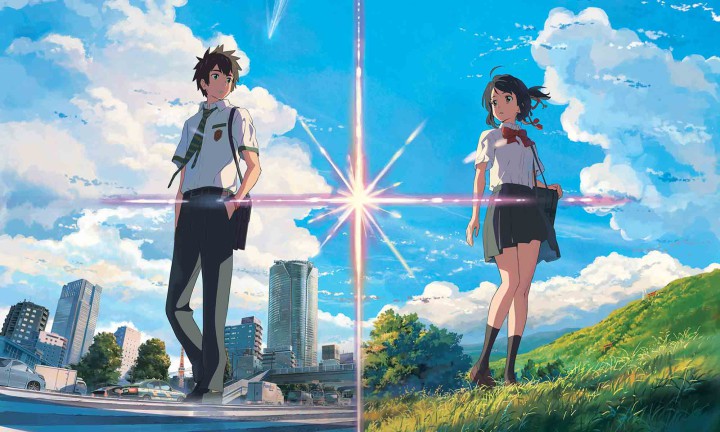
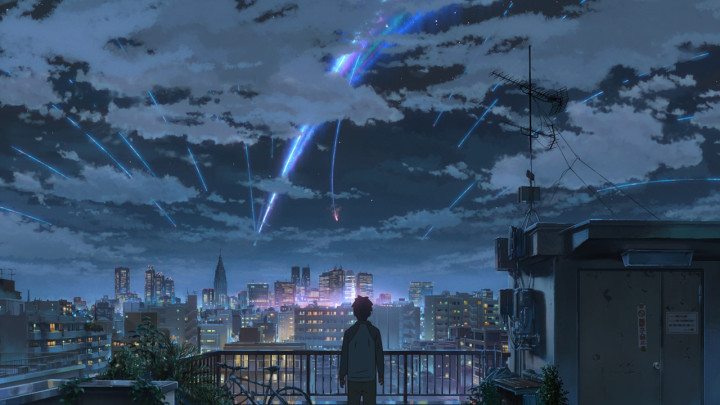
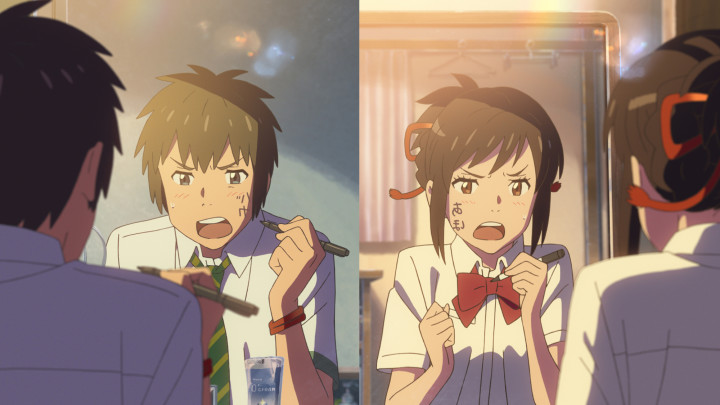
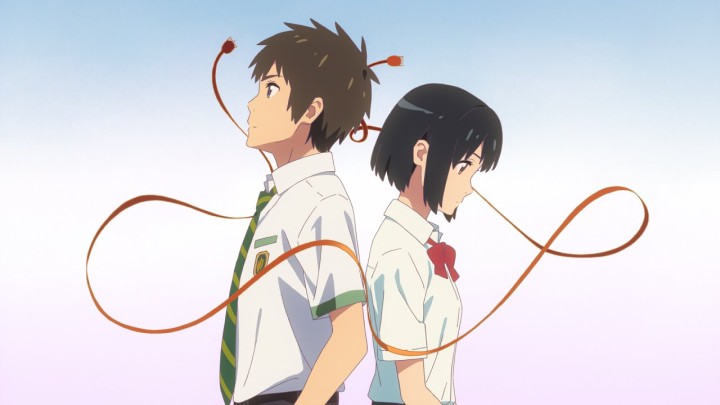
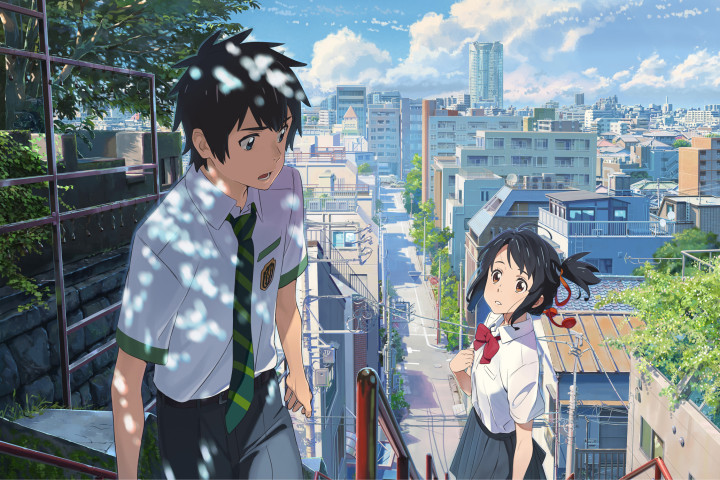

Rushed out to see this, after your glowing review and another 4-plus-star review at Roger Ebert’s website, and I wasn’t disappointed. Beautiful visuals! Where it ends up is miles away from what it was at the start, in a very emotionally satisfying way. Seems to be a master class in how to introduce and flesh out supporting characters without them getting in the way – they all help drive the main narrative. And although I agree it zips along, covering a lot of ground in 106 minutes, I think most Americans brains are operating on a different wavelength from this film – one comment I heard from an audience member at the end: “I thought that would never end!”